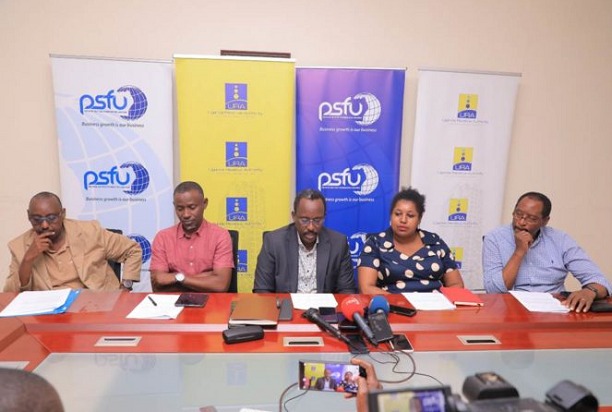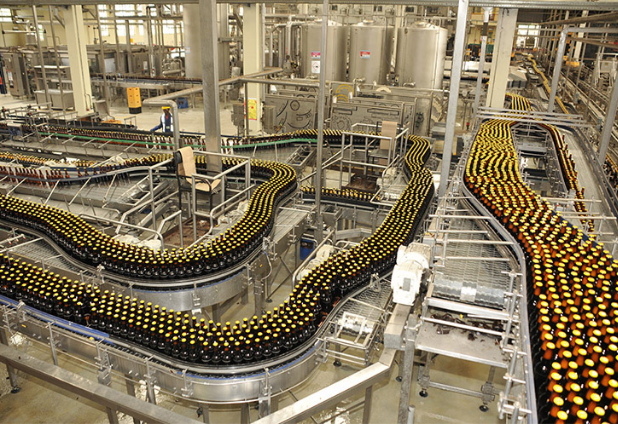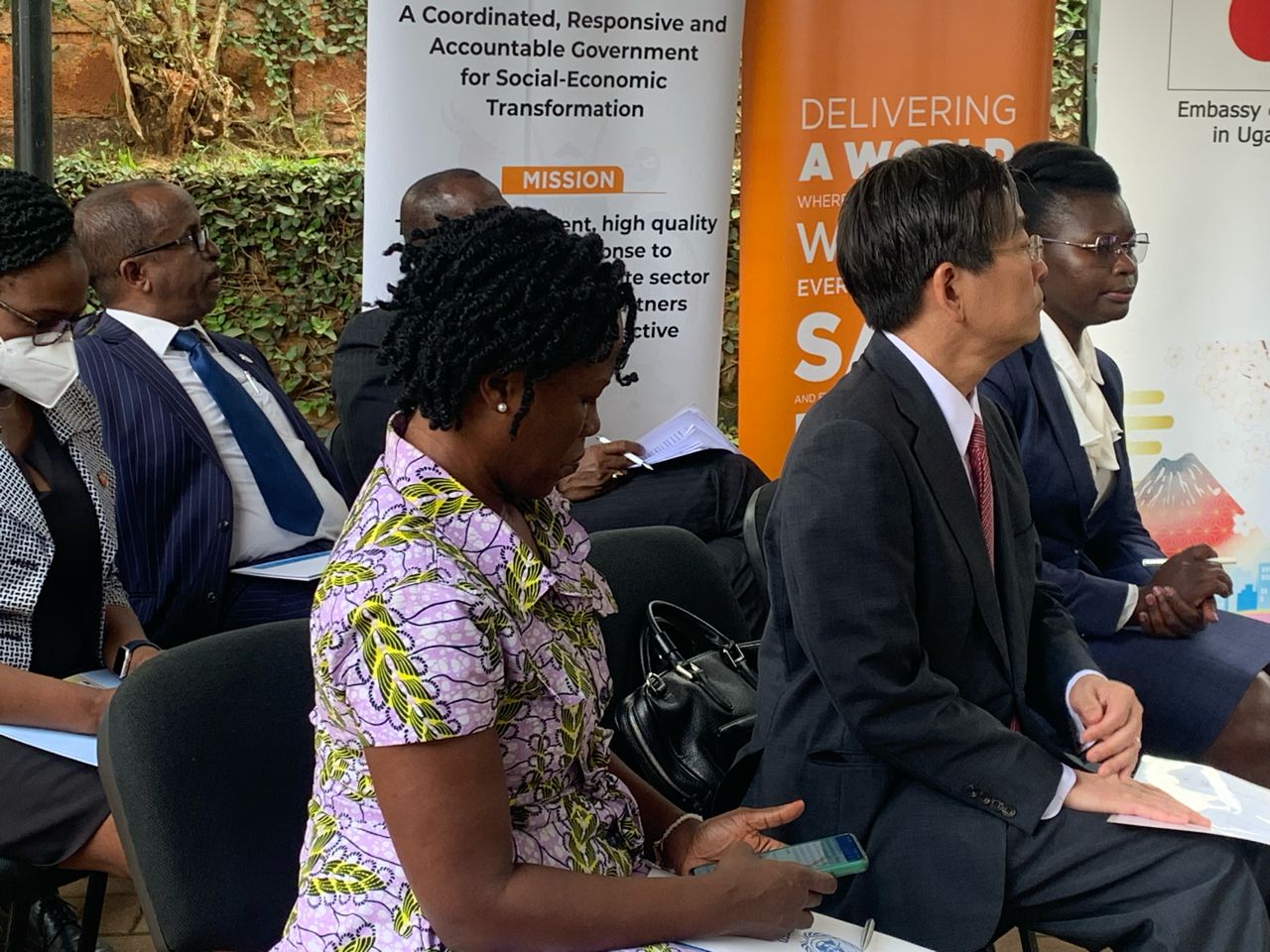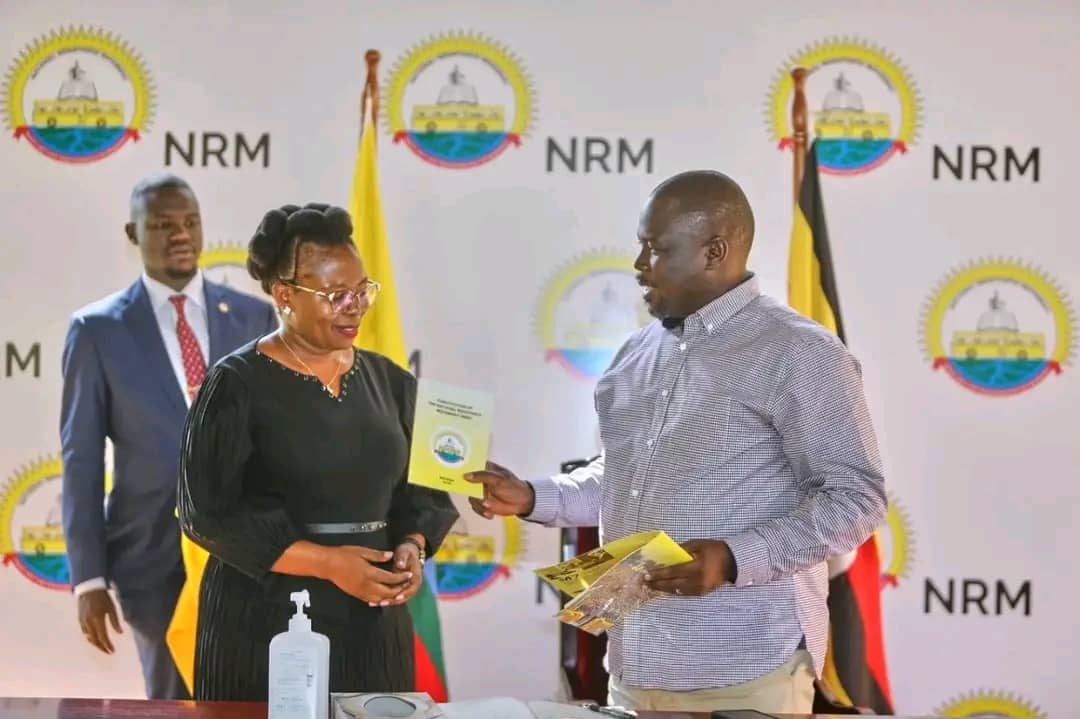By Annet Nantongo
During a recent enforcement operation, Uganda Revenue Authority (URA) enforcement officers received intelligence information about a motor vehicle headed city-wards to deliver unstamped gin.
Keep Reading
- > Politicians hiring goons to attack traders who refuse to participate - police
- > URA Urged to Address 15% Withholding Tax on Members' Dividends
- > URA to open an operational office in the Kikuubo business area aimed at educating traders about EFRIS services
- > Politicians planning to hijack Kampala traders’ protest on e-receipts- police
The URA team lured the vehicle by fronting themselves as buyers of the flouter’s flavoured gin product. The purported order was 30 cartons which prompted the driver of motor vehicle Toyota Noah Reg No. UBD896V to prepare the delivery for Kyaliwajjala in less than 24 hours.
On arrival, the driver sensed a trap and took to his heels leaving the car and the ‘salesman’ at the mercy of the enforcement team. The salesman was duly apprehended to facilitate further offence management and immediate verification revealed 53 cartons of unstamped flavoured gin.
The company faced a penalty of Shs 50 million, for possession of unstamped gazetted goods in accordance with the Tax law.
Over the last one year, several URA enforcement operations around implementation of the Digital Tracking Solution (DTS) have raked in a total of over Shs 3 billion of revenue as a result of netting 21 DTS flouters who were caught manufacturing, selling, exporting or distributing gazetted goods without the tax stamps.
The unsuspecting DTS flouters are majorly manufacturers of beverages and alcohol, which are some of the products gazetted to carry digital tax stamps.
The digital tax stamp is a mark affixed on gazetted products to uniquely track and trace them on the market. The stamps come in different formats such as; the direct ink print mainly on bottled water, soda and beer; the paper stamp on cigarettes, some bottled water, soda beer brands and on wine/spirit bottles. The stamps are affixed onto the products upon packaging.
This implies that manufacturers and importers of the gazetted products either install a stamp applicator on their production line or order for and buy the serialized stamps from URA. The products gazetted so far are soda, beer, wine, spirits, bottled water and cigarettes.
Other products soon to be gazetted include sugar and cement. URA started implementing the DTS in November 2019. With continuous efforts to on-board clients of required businesses, the robust high-tech solution under the Domestic Resource Mobilisation Program, has registered growth in Local Excise Duty and VAT contributions over and above their expected average revenue growth rates.
From November 2019 to June 2020, 50 manufacturers registered growth of Shs 6.2 billion in Local Excise Duty while 27 manufacturers registered growth of UGX 16.9B in VAT revenue.
For over one year now, URA has successfully registered 232 businesses on DTS comprising 185 manufacturers and 47 importers, against an initial target of 107 manufactures and 33 importers.
Prior to DTS implementation, there were many sub-standard and adulterated products on the market produced by people who were neither registered with URA nor certified by Uganda National Bureau of Standards (UNBS), which was a downplay to the formally registered competitors. This has since changed with the implementation of DTS.
DTS aids efficient revenue mobilisation by mitigating revenue losses and deterring existing deficiencies in tracking and tracing of locally manufactured and imported products. The solution also helps wipe out illicit trading that levels the business play field in favour of the compliant taxpayers.
URA, in partnership with UNBS, ensures that stamps are only given to certified manufactures and importers for the general safety of the consumer.
As a result, consumers are empowered to ascertain that what they are consuming conforms to health standards. In line with the public notice issued in September 2020, all manufacturers and importers of gazetted products with stock manufactured or imported before November 1 2019 must recall it from the market for stamping; and all distributors, and retailers shall not stock, store or sale products gazetted for DTS without a digital mark with effect from 1st October 2020.
URA has and continues to engage the key players such as Uganda manufacturers’ Association, Kampala City Traders Association- KACITA, Ministry of Trade Industry and Co-operatives, Uganda National Bureau of Standards (UNBS), and Uganda Alcohol Industry Association for a smooth and successful implementation of the solution.
Although DTS has an administrative cost of buying stamps and system installation, the long-term impact on business efficiencies and anticipated revenue collection from the system outweighs the cons encountered in primary stages.
URA implores all local manufacturers and importers of gazetted products to register for DTS, stamp and activate the stamps on their products immediately after packaging.
URA will continue to carry out enforcement against anyone found in contradiction of the DTS laws and regulations.
The Writer works with the Public and Corporate Affairs Division of Uganda Revenue Authority.



















